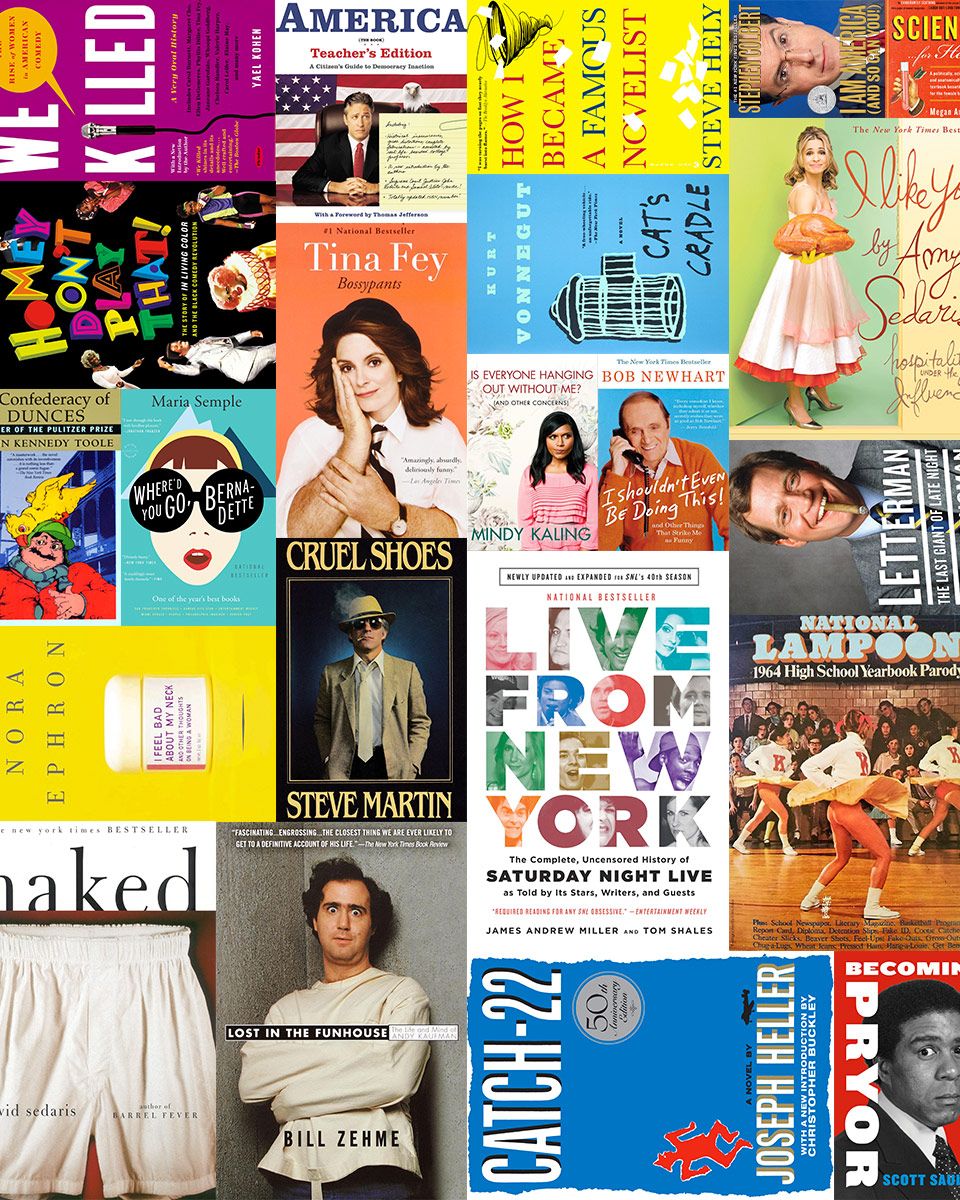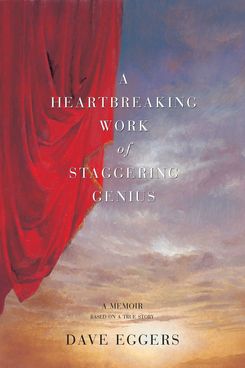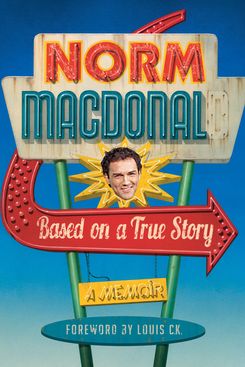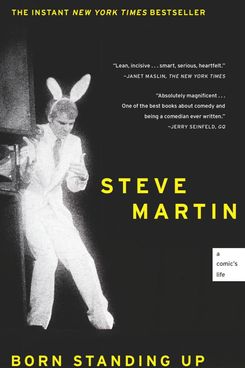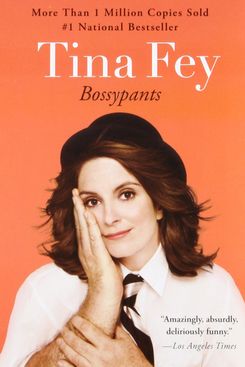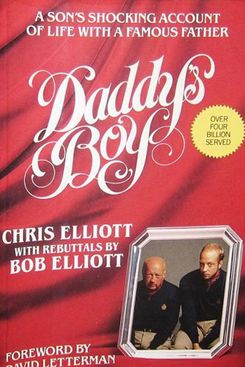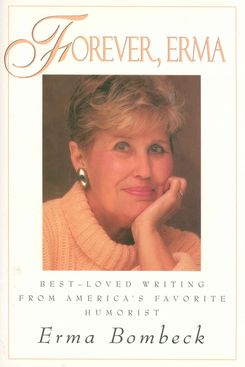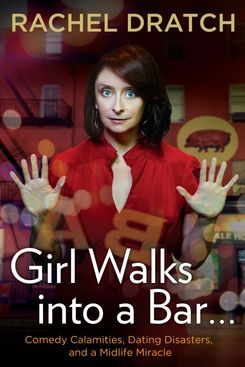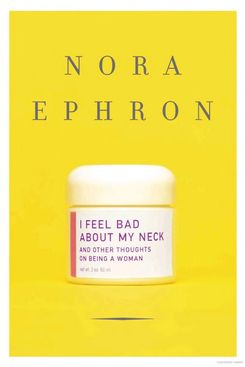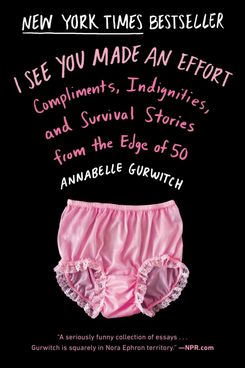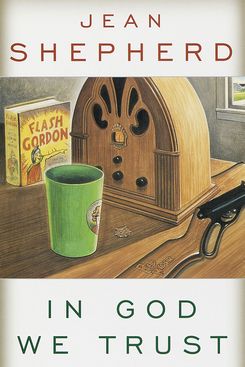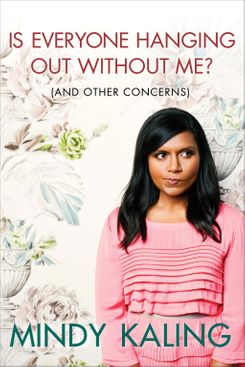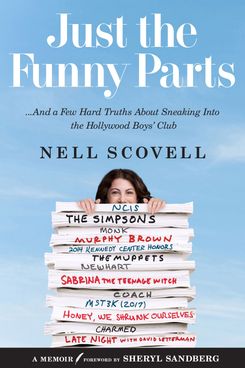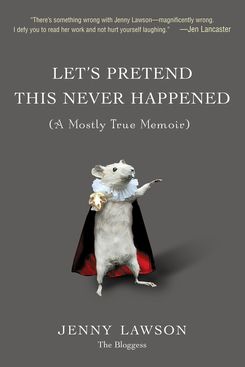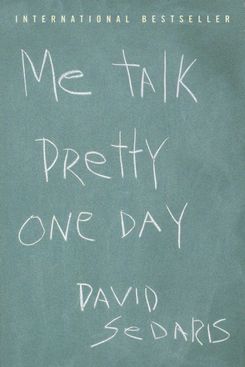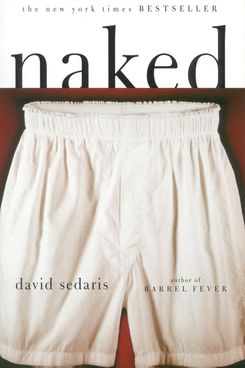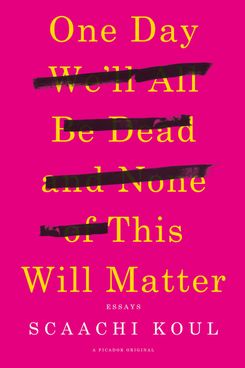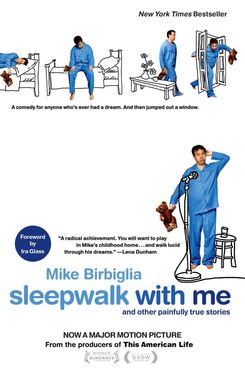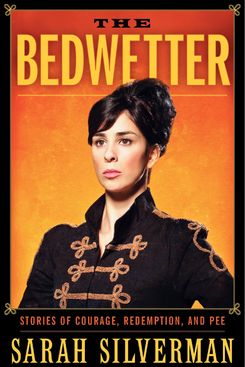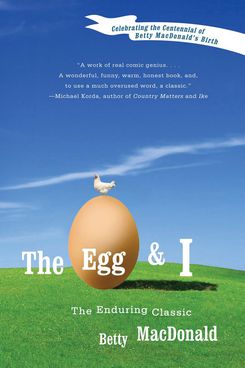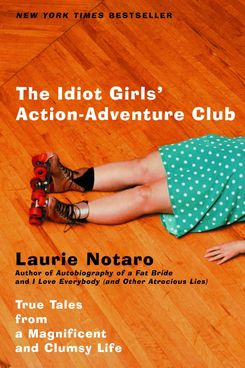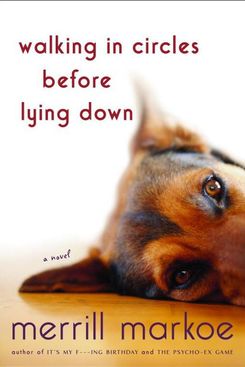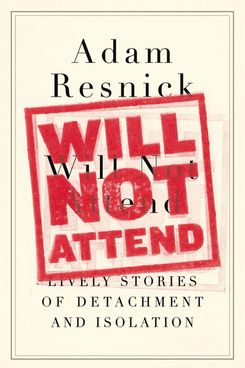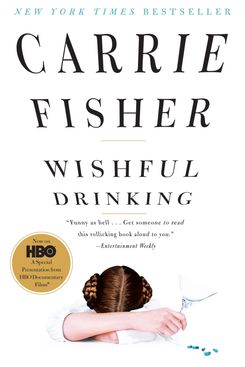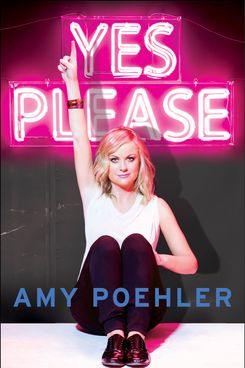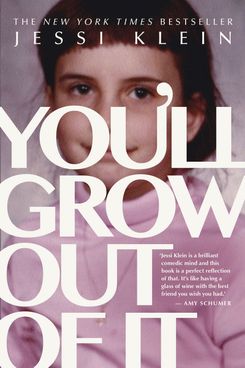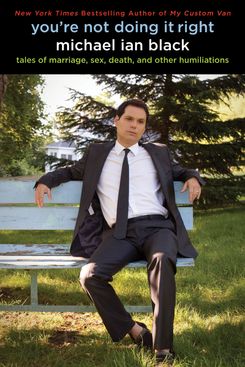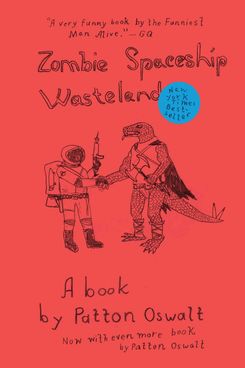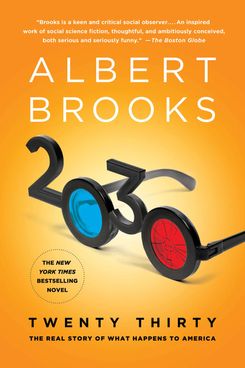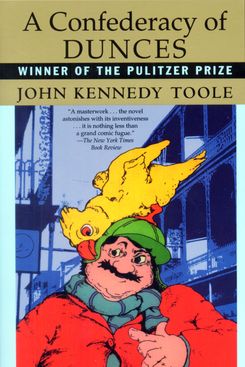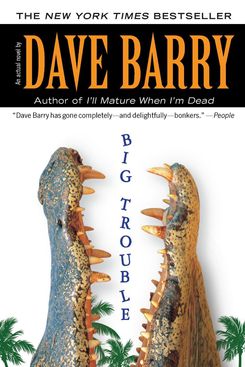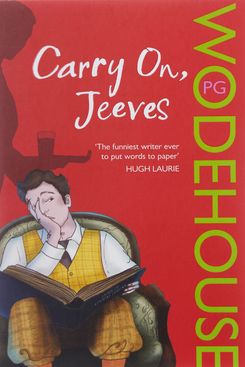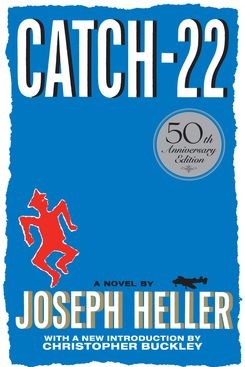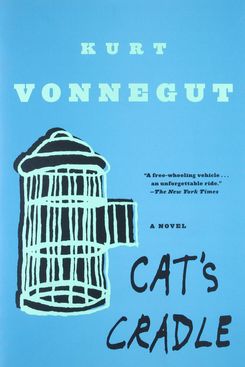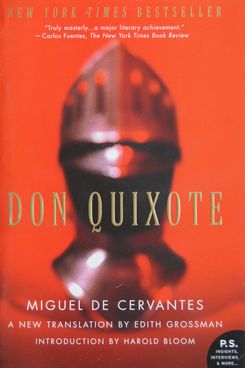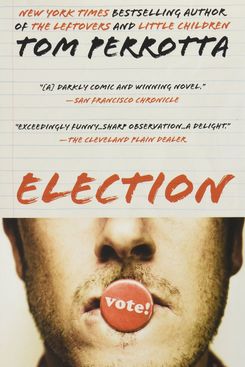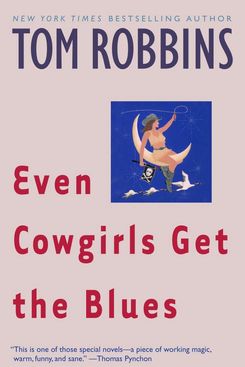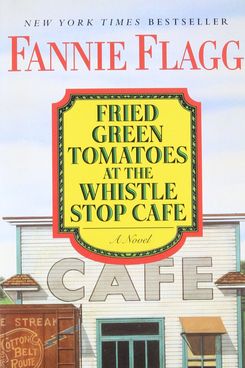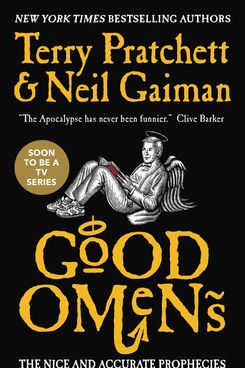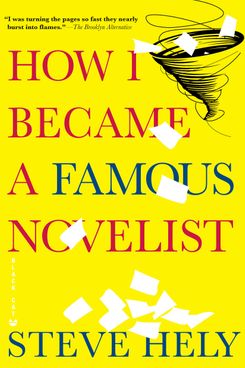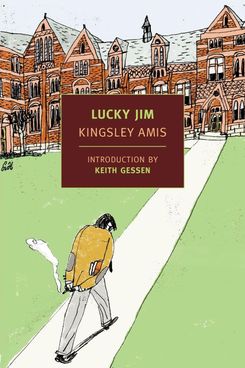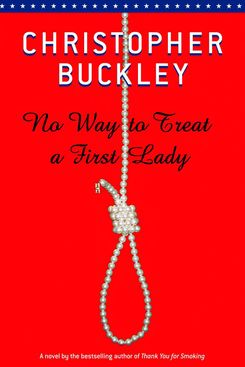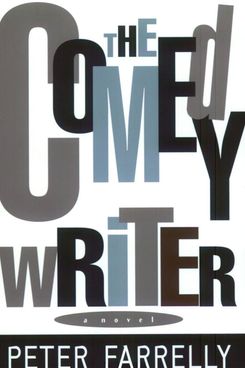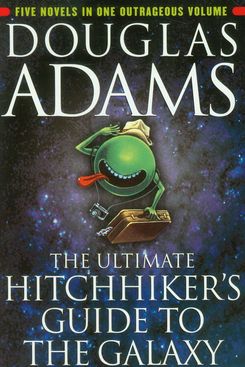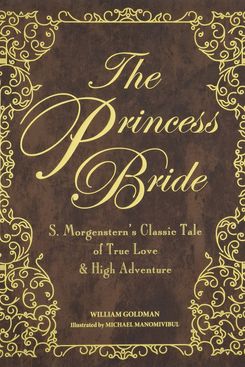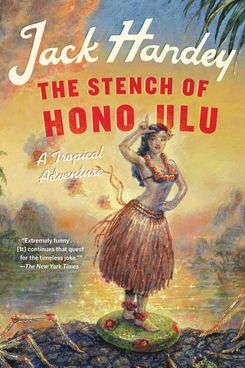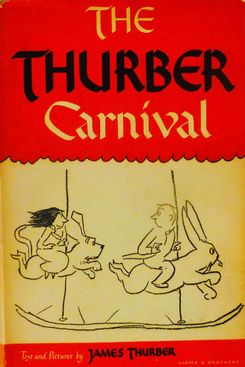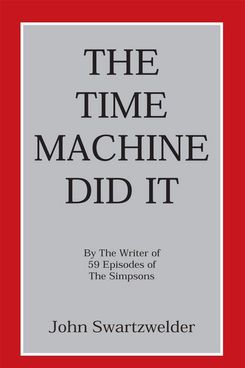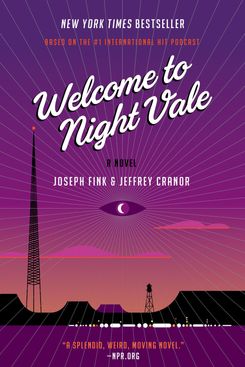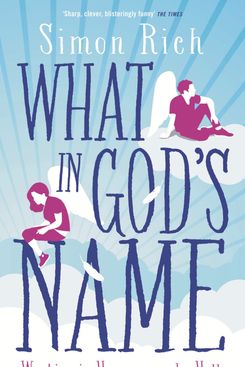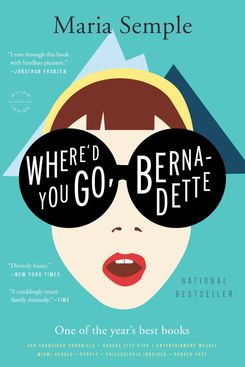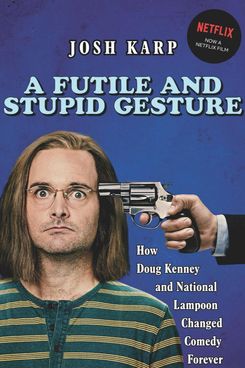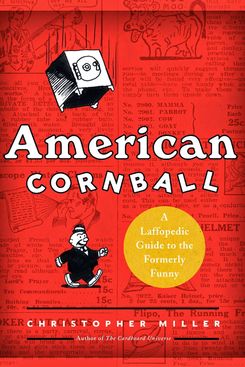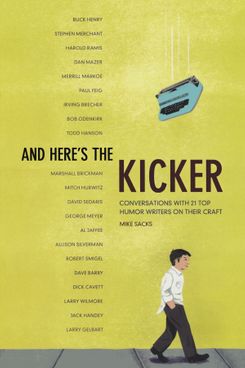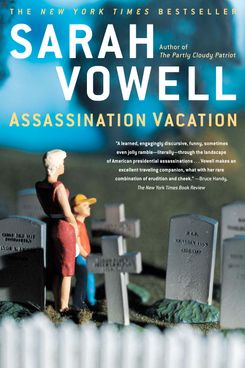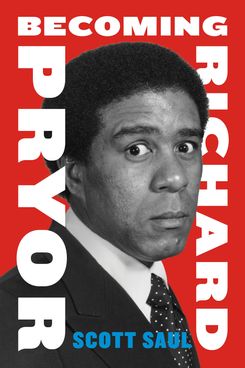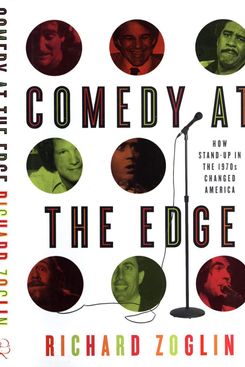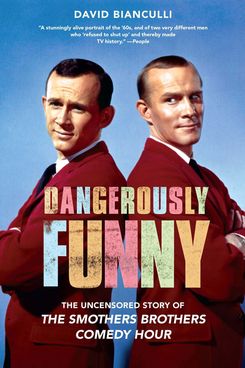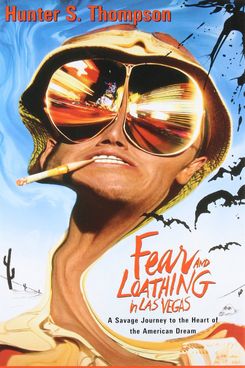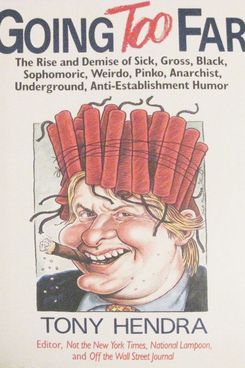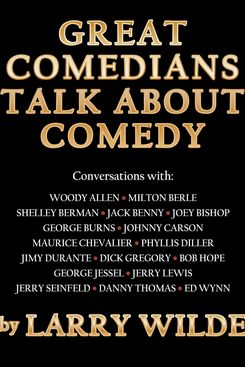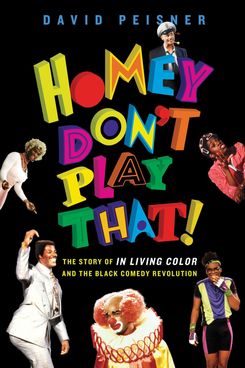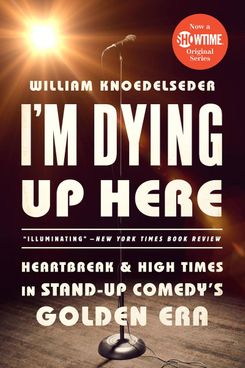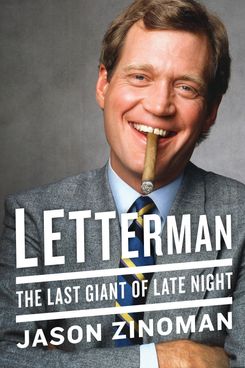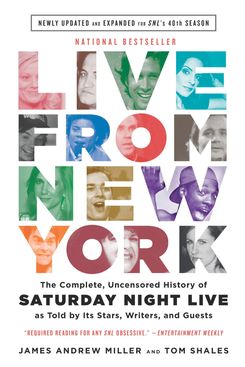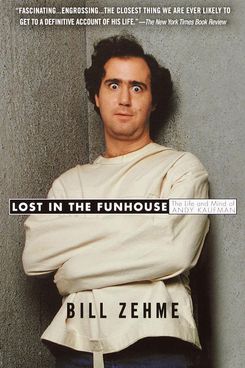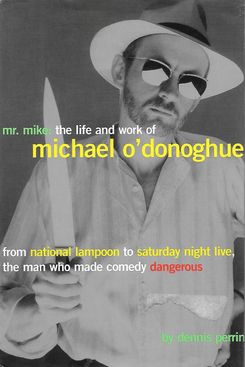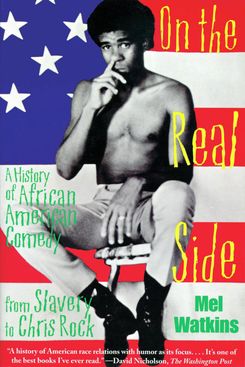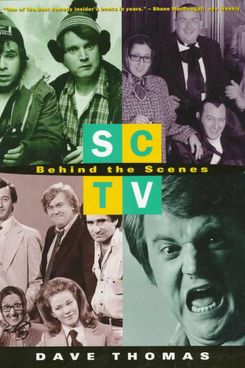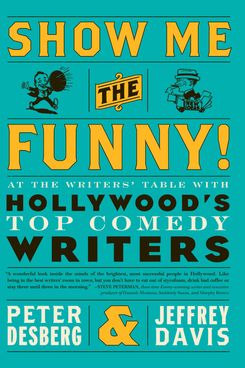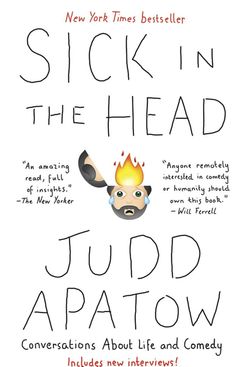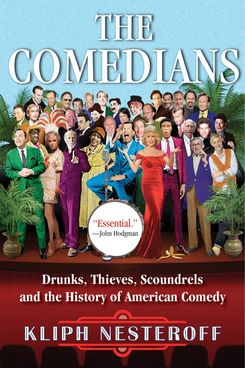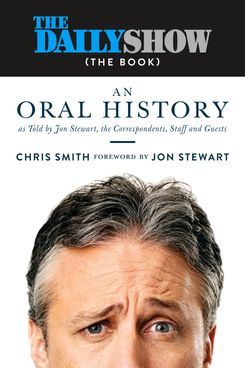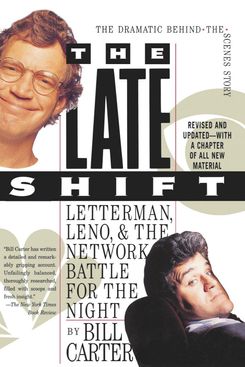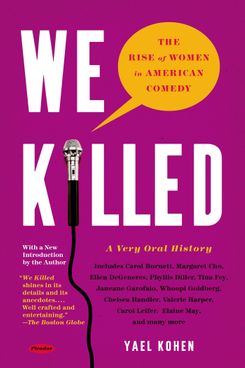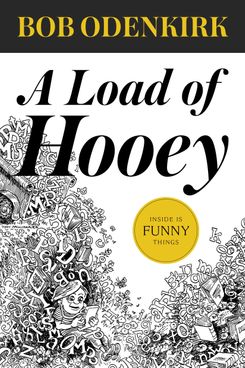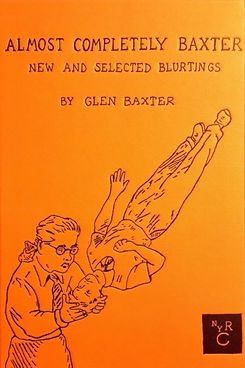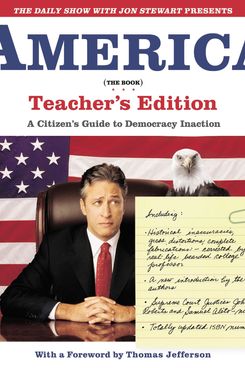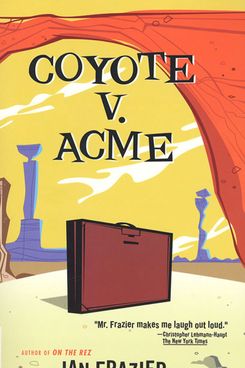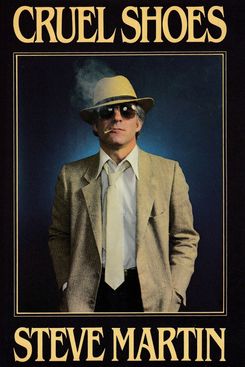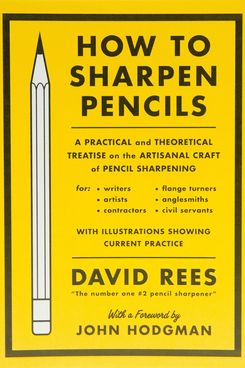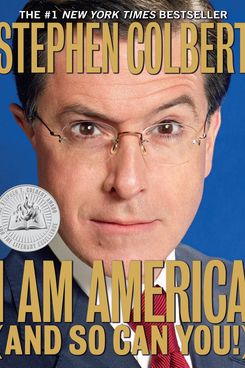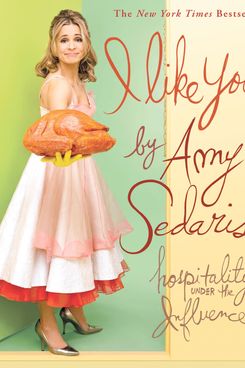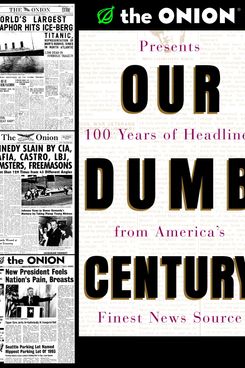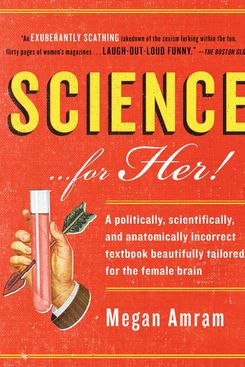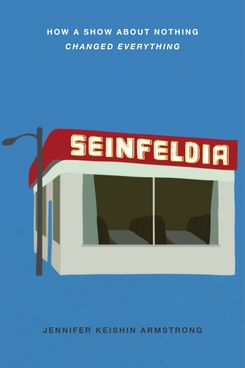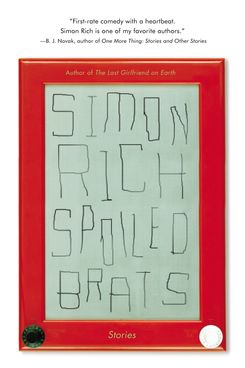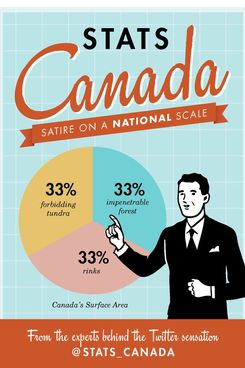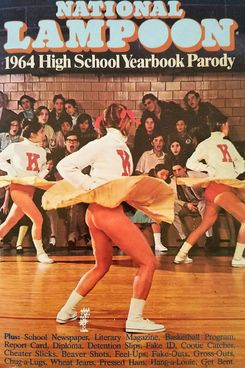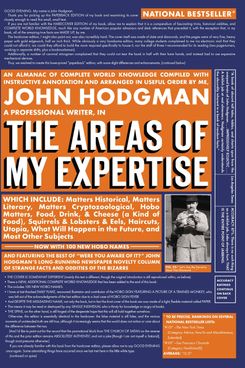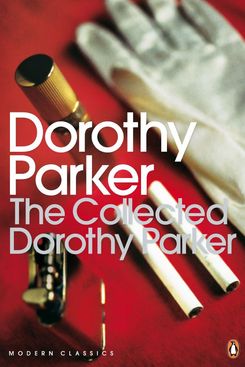Hey, it’s books! Books have a lot going for them. They make you look smart when you read them, people leave you alone if you’re reading one in public, they’re cheaper than movies, and they’re really just a whole bunch of tweets strung together.
Books are very important to comedy, and historically they’ve been the one medium that takes comedy as importantly as it should be taken, in terms of its history, execution, theory, and practice. Here then are 90 comedy and comedy-related titles — memoirs, fiction, essay collections, interviews, TV tie-ins, and more — that a student of comedy’s library simply must include.
Memoirs & Autobiographies
A Heartbreaking Work of Staggering Genius by Dave Eggers (2000)
Eggers is a fairly important individual in humor and letters, what with founding McSweeney’s and becoming a successful novelist. His first book, however, was this hilarious sort-of memoir, or rather autobiographical novel. After detailing life as a young gadabout forced to grow up fast when a tragedy leads to him raising his brother, we get back into the funny, massaged adventures of the go-for-broke Eggers, such as how he runs the much-missed magazine Might and unsuccessfully auditions for The Real World.
Based on a True Story by Norm Macdonald (2016)
Comedians and comedy nerds love Norm, but why? It might be because he sarcastically and boldly ignores the rules, like regular joke rhythms or not being polite — he once told actress on Late Night that her terrible movie was terrible. As such, Norm takes his own approach to the stand-up memoir, turning it into something that’s painfully true and also preposterously not true, but delivered with Norm’s familiar deadpan. It keeps you guessing, like, did he really bring out morphine and a syringe during his SNL audition?
Born Standing Up by Steve Martin (2007)
Including all entertainment memoirs, not just comedy people, is Steve Martin’s, and not just because of Martin’s unsurprisingly beautiful prose. Unlike most memoirs, it seems to convey a clear-eyed honesty, as Martin seeks to de-mythologize his own life, one that the rest of us have so mythologized, specifically his days in the 1970s when he was a stadium-filling stand-up comedian. (He even calls it a biography, and not an autobiography, because he’s “writing about someone I used to know.”) He’s so honest with himself and the reader that when he explains why it is he quit comedy to pursue acting, art, and writing, the reader understands.
Bossypants by Tina Fey (2011)
You can’t be Tina Fey, but you can get close to understanding what it is like to be Tina Fey, whose rise seems both hard and easy, probably because she is Tina Fey and equipped with the life, managerial, and comedic skill to do so and make it look easy (or at least make hard work look fun). Constantly interrupting herself with jokey but relevant life advice (“talent isn’t sexually transmitted”) and self-deprecating one-liners, Fey charts her rise from Pennsylvania nerd to Chicago improv comedian (and employee of the city’s creepiest YMCA), up through SNL, 30 Rock, and motherhood.
Daddy’s Boy by Chris Elliott (1989)
Elliott, the “Guy Under the Stairs” on Late Night with David Letterman, the thirtysomething paperboy on Get a Life, and the cabin boy in Cabin Boy, has written a few fake nonfiction titles, such as Into Hot Air, about his disastrous, not-real ascent of Mount Everest. But the innovative, meta-comedian wrote an actual, mostly truthful book with Daddy’s Boy, as the subject is too real — it’s about growing up and forging one’s own identity and voice in the wake of phenomenally successful parents in the same business. After all, he’s the son of Bob Elliott of the classic comedy duo Bob and Ray. It’s the rare book that’s also self-accountable, because after every chapter Chris Elliott delivers, Bob Elliott gets his own rebuttal chapter.
Forever, Erma by Erma Bombeck (1996)
For most of us, our comedy education all started with the same things: Sesame Street, whatever comedy albums our parents had lying around, and whatever funny books were on our parents’ bookshelves. For me, because my parents are old, that meant the complete works of Erma Bombeck, books with titles like If Life is a Bowl of Cherries, Why Am I Stuck in the Pits? and other now-tired aphorisms. But come on, if you want a complete and exhaustive comedy library, you have to include the greats that maybe didn’t age well, but which paved the way for today’s comedy section at the bookstore, which is essay collections of comedians, columnists, and, for some reason, YouTube stars. Bombeck did stand-up comedy on the page, most of it about how fed up she was with domestic life.
Girl Walks Into a Bar by Rachel Dratch (2012)
Girl Walks Into a Bar deals a lot with something that arts and entertainment books don’t touch on much — disappointment and the abrupt end of glory. For example, Dratch went from an epic run on SNL to being cast as Jenna on old scene partner Tina Fey’s 30 Rock, and was replaced after the pilot. Life doesn’t go where you think it’s going to go, which is another theme of this book, which ultimately becomes a sweet and lovely story about second chances and unexpected joy. (Dratch meets a guy and has an unplanned baby late in her child-bearing years.)
I Feel Bad About My Neck by Nora Ephron (2006)
Ephron was never not candid, never held back anything—any tragedy, indignity, embarrassment, or personal triumph was fodder for her many books, because “everything is copy,” as she reportedly said and clearly did. In addition to wonderful comedy scripts like When Harry Met Sally, My Blue Heaven, and Sleepless in Seattle, Ephron mined her private life for her books. In I Feel Bad About My Neck, one her last before her death in 2012, is about her own (but universal) experiences with aging, menopause, and empty nest syndrome, along with her favored topics of food and New York.
I See You Made an Effort by Annabelle Gerwich (2014)
A lot of comedian memoirs are about the past, and childhood; Gerwich chose to write about the less-than-perfect present, and the future. Gerwich has been hosting shows and acting in things for more than 20 years, and she also wrote this gritty, self-deprecating memoir of coming to terms with the specter of middle age and all the crap that goes along with that. For example, she writes of having to buy far-too-expensive and probably not-effective anti-aging treatments, while also dealing with the assisted-suicide death of her best friend.
In God We Trust, All Others Pay Cash by Jean Shepherd (1966)
Radio host and humorist Jean Shepherd tended to exaggerate the tales of his childhood (as do most people), and the best ones are about Christmas in the heavily nostalgized mid-20th century. This collection was adapted into the perennial Christmas classic A Christmas Story, which Shepherd narrated. The movie lacks a lot of Shepherd’s biting sarcasm and cynicism, because this book does pine for the good old days while also pointing out how adults then, and now, are a bunch of phonies.
Is Everyone Hanging Out Without Me? by Mindy Kaling (2011)
Before she had her own shows and became a movie star, but after she wrote for and starred on The Office, Kaling published this, the first of two books of chatty, free-wheeling essays on her life and worldview. Among her topics are themes she’s explored elsewhere in her work, like the vagaries of friendship and romance, but this also finds her reflecting on fame, and how the truly right amount of fame is just enough to get oneself acquitted of murder.
Just the Funny Parts by Nell Scovell (2018)
Scovell has been writing for TV for decades, helping craft the comic sensibilities of shows like Murphy Brown, Late Night with David Letterman, The Simpsons, Sabrina the Teenage Witch (which she created), and, uh, NCIS. Scovell’s book is a memoir first off (she’s had memorable moments with both Stephen King and Leonard Nimoy) but also a witty and endearing look into the culture of TV writer’s rooms (of which she was usually about the only woman present), and while they aren’t terribly glamorous, it’s really fun and interesting to get a feel for what they’re like.
Let’s Pretend This Never Happened by Jenny Lawson (2012)
Isn’t that just the best title for a memoir? At the end of the day, all memoirs could be called that, because they’re about writers sharing mortifying and fascinating events from their lives so as to let them go. But what if the material is just a bit too embarrassing? Then you do what Lawson, an incredibly popular “mom blogger” and the true identity of The Bloggess, does and give it a subtitle like “a mostly true memoir” to cover the weird, morbid, and goofy moments in her personal and highly varied work life.
Me Talk Pretty One Day by David Sedaris (2000)
America’s favorite NPR hero and proponent of journaling is about the best there is at relating hilarious autobiographical material. This collection of essays is split into two parts: the first chronicles his childhood in North Carolina, and the second his experiences living in Normandy with his boyfriend (later husband, Hugh) and attempting to learn French.
Naked by David Sedaris (1997)
This is the book that really made David Sedaris famous, and kicked off the memoir craze that never really stopped. This one is his Thriller, in the sense that while almost every single song on that album was a huge hit single, nearly every entry in Naked is one of the David Sedaris stories you’ll bring up when people start talking about David Sedaris. You’ve got the one about young his compulsion to lick light switches, the one where his difficult grandma — Ya-Ya — comes to live with the family, the one where he realizes he’s gay at Greek summer camp, the one where he goes to a nudist colony, and, of course, “Dinah the Christmas Whore.”
One Day We’ll All Be Dead and None of This Will Matter by Scaachi Koul (2017)
Koul is one of the funniest people online, both in her work for places like Jezebel and The New Yorker and her must-follow Twitter feed. In this collection of not-so-loosely connected essays, Koul details what it was like to grow up in Calgary, Alberta, as well as the daughter of parents who emigrated from India. It’s stunning how well Koul can alternate between self-deprecating, eye-opening, and heartbreaking, or when she just does all three at the same time.
Sleepwalk with Me by Mike Birbiglia (2012)
Having a harrowing sleep issue — REM Sleep Behavior Disorder — changed Mike Birbiglia’s life, and so did writing about it. Dude wrote what he knows, and the story of his journey to sleep health, which includes falling through a window at a La Quinta, is fascinating. With this project, Birbiglia transformed from a funny but conventional stand-up comedian into a pioneer of “storytelling,” which is performative like stand-up but doesn’t have to be funny and often isn’t. Birbiglia has done the story of Sleepwalk at storytelling events, as a one-man show, as a movie, and in this very funny book.
The Bedwetter by Sarah Silverman (2010)
Silverman’s memoir covers what you’d think it would cover, and in her distinctive voice — her comedy career, her influences, her style, and the differences between her real self and her semi-fictionalized, gently shocking stage persona. The title of the book isn’t merely an attention-getter, or meant to provoke — she recounts her very long struggle with juvenile bedwetting. There’s also an afterword by God, which is quite the “get.”
The Egg and I by Betty MacDonald (1945)
A now largely forgotten pop culture phenomenon began with this amusing memoir with a simple premise. In 1945, MacDonald, best known for the Mrs. Piggle-Wiggle series of children’s books, published this book about the time she got married and moved out of metropolitan Seattle to a chicken farm in rural Washington. It’s probably the original “outsider tries crazy thing and writes memoir about it,” a much more modern phenomenon because of books like A.J. Jacobs’ My Year of Living Biblically, but it’s a classic fish-out-of-water and culture-clash story. It was adapted into a huge hit movie starring Claudette Colbert and Fred MacMurray, but the breakout characters were local yokels Ma and Pa Kettle, who went on to star in eight spinoff movies.
The Idiot Girls’ Action Adventure Club by Laurie Notaro (2002)
In Notaro’s first book of first-person narratives, a collection of columns she wrote for the Arizona Republic, concern Notaro’s feet-dragging, booze-soaked journey from out-of-control young adult to slightly less out-of-control young adult. There’s lots of drinking, getting mistaken for a homeless person, calling others out on their crap while ignoring her own, dead-end jobs, trashy adventures, and many epic hangovers. Notaro is more or less a likable, funnier, more populist Charles Bukowski.
Walking in Circles Before Lying Down by Merrill Markoe (2006)
Markoe is a huge reason why Late Night with David Letterman was so innovative, different, and funny. She came up with long-running signature segments such as “Viewer Mail,” “Stupid Human Tricks,” and “Stupid Pet Tricks,” surely born out of her deep, deep love for dogs. In addition to essays about why dogs are wonderful and silly, she wrote this great comic novel about the curative powers of doggos and puppers. Protagonist Dawn’s life isn’t going so good, until she turns to her rescue dog Chuck, who, to her surprise, talks back. Then she can hear all dogs talk.
Will Not Attend by Adam Resnick (2014)
A book of self-loathing and misanthropy from Resnick, Chris Elliott’s longtime collaborator who co-wrote Cabin Boy and Get a Life? Yes, please. Resnick speaks on behalf of seething, antisocial comedians everywhere, explaining and dismissing his quirks with lots of memories childhood, such as a horrible, no-good, very bad Easter egg hunt.
Wishful Drinking by Carrie Fisher (2008)
Princess Leia in the Star Wars movies, third lead in When Harry Met Sally, born-into-fame daughter of Debbie Reynolds, sure, fine. But Fisher was born to be a writer, working as a punch-up artist and script doctor on an untold number of classic films, and also as a memoirist, forever and wittily trying to get to the bottom of why she was such a much. (Her relationships tend to not go well, and she had a love/hate relationship with substances.) Along with Postcards from the Edge, this is Fisher’s most vital, soul-baring, and charmingly self-deprecating collection.
Yes, Please by Amy Poehler (2014)
Poehler has probably shaped Today’s Comedy more than anybody else — she founded the UCB! She made SNL a better place to work, and better in general! She anchored Parks and Recreation, a comedy that defied conventional wisdom to be both incredibly sweet and incredibly funny. In Yes, Please, we finally get to hear how Poehler made it all happen, so this book is also a de facto history of Upright Citizens Brigade as well as an incredibly inspiring book that encourages the reader to just kind of, well, go for it…but to not be a jerk on the way.
You’ll Grow Out of It by Jessi Klein (2016)
Inside Amy Schumer was marvelous, but it always felt a bit different from her stand-up comedy, tone and content-wise. That’s because in addition to Schumer’s ideas, the show benefitted from the input of head writer Jessi Klein, who is a master of telling a fantastic story in a finite amount of time, as she does in this collection of personal essays, many of which are about growing up as the smartest person in the room. Standout pieces include “Tom Man,” which is about being a “tomboy” after young women are expected to grow out of it, and a keen, very thorough analysis of why The Bachelor is so entertaining despite its awfulness that will make you actually want to watch The Bachelor.
You’re Not Doing It Right by Michael Ian Black (2012)
Black sheds his arrogant, Hollywood big-shot persona to get honest in a series of essays. As it turns out, and this should be a highly relatable twist, Black is like most writers and comedians and is crippled with self-doubt and an inability, or at least a fear of an inability, to do most things. These essays track Black riding the thin line between getting by and failure, often as it pertains to his experiences with marriage and being a dad.
Zombie Spaceship Wasteland by Patton Oswalt (2011)
This is a variety of fun stuff for the Patton completist. There’s a lot of essays about Oswalt’s youth and teen years in Virginia, and his recollections of working as a not terribly motivated young man in a movie theater are quite entertaining. He also includes some short comic books, a story about a lackluster vampire, fake greeting cards, and a cultural manifesto on par with his Star Wars rant on Parks and Recreation — about how all young genre fiction writers will eventually write about zombies, spaceships, or wastelands.
Novels & Fiction
2030 by Albert Brooks (2011)
Well, this was unexpected: a caustic and thorough indictment of Baby Boomer entitlement written by one of the Baby Boomers’ most important and original comic voices. Albert Brooks, having excelled at short films, directing films, acting in films, and comedy albums, successfully gives the (very dark) comic novel a shot with 2030. Set in the not-very-distant future, cancer has been cured, meaning people are living well past 100, but still retiring around 65 or so, and their demands for the social safety net destroys the economy, leaving a frightfully resentful younger generation with the burden.
A Confederacy of Dunces by John Kennedy Toole (1980)
The story of how this New Orleans-adoring picaresque novel even came to be is almost as good as the story of the novel itself. Toole couldn’t get the thing published when he wrote it in the ‘60s, and depression eventually got the best of him and he committed suicide. His mother carried on the dream, and finally got Dunces published…and it went on to win the Pulitzer Prize for Fiction. The book itself is marvelous — centered around Ignatius J. Reilly, an arrogant, put-upon, misanthropic academic who still lives at home who ventures into the Crescent City as he attempts to find work, get out of his own way, and meets a string of colorful characters.
Big Trouble by Dave Barry (1999)
After years of writing his goofy, laid-back column beloved by dads, uncles, and literate class clowns, the great defender of Florida and pointer-outer of middle-class absurdities turned to fiction, and he succeeded immediately. Big Trouble is very cinematic, or even Seinfeldian, in the way that the book’s huge cast of characters’ lives all somehow intersect in an organic way, revolving around a game of Killer as well as some actual hitmen. This involves some high school kids, single parents, a maid, a dog, and hallucinogenic toads.
Carry On, Jeeves by P.G. Wodehouse (1925)
Any or all of Wodehouse’s numerous collections of Jeeves and Wooster should be in a well-stocked comedy library. They’re forever set in an idealized early 20th century England where the stratified class system dominated cultural life, in which wealthy men spent their days at gentlemen’s clubs, interrupting their lives of leisure to go chill out even more in the countryside. You could argue that Wodehouse invented the sitcom with Jeeves and Wooster, in that the themes and characters are extremely consistent, but always amusing. Idiotic rich boy Bertie Wooster gets himself into some kind of sticky situation with another rich idiot, and his quietly sarcastic, above-it-all, genius butler Jeeves inevitably gets him out of it.
Catch-22 by Joseph Heller (1961)
Set amidst a military battalion stationed in Italy during World War II, bombardier Yossarian isn’t so much into the rah-rah of war, what with all the potential for death, and his superiors who keep ordering his team to fly more missions, as if they were the corporate office demanding better third-quarter numbers. Central to the book is the titular premise, which subsequently entered the vernacular. Basically, a pilot will be officially considered insane if they want to fly more of those potentially fatal missions, and yet if he puts in a request to skip those missions, which are foolhardy to say the least, he’ll be judged sane because he has the wherewithal to know they’re a bad idea…and then will be forced to fly those missions because he isn’t insane.
Cat’s Cradle by Kurt Vonnegut (1963)
Yes, it’s still as good as it was when you read it high school. A Cold War/arms race satire about Dr. Felix Hoenikker, a Nobel Prize winner for inventing the atomic bomb. A historian named John interviews Hoenikker’s family and associates and realizes that he didn’t so much invent the bomb as he invented another, more useful (but also more dangerous) substance that was used by the military for weaponry, and sold off by the kids to various buyers for a small fortune. The journey also takes John to a doomed remote island and everyone on Earth accidentally dies, which is par for the course with Vonnegut.
Don Quixote by Miguel de Cervantes (1615)
One of the oldest novels (first published in the early 1600s) that’s still widely read, this Spanish classic has got to be the oldest comic novel in existence, and one that provided many archetypes of Western comedy. A nobleman goes a little mad after reading too many tales of classic chivalry, and basically believes he’s a knight, and sets out on a quest to bring honor, justice, and dignity to the world. The most famous and representative image of the book: Don Quixote thinks windmills are giant beasts, and that he must fight them.
Election by Tom Perrotta (1998)
One of the funniest political and high school novels ever written, it’s loosely inspired by the 1992 presidential campaign that pitted establishment guy George Bush against charismatic up-and-comer Bill Clinton and party-crashing upstart H. Ross Perot. Perrotta’s dark and wry comedy is about a suburban New Jersey high school election, between the ambitious and qualified but wholly unlikeable Tracy Flick, popular dim bulb Paul, and Paul’s sister, Tammy, who runs as revenge against Paul for stealing her girlfriend. There’s also the matter of a teacher stupidly risking everything to sabotage Tracy’s campaign and even fix the election because even he hates her.
Even Cowgirls Get the Blues by Tom Robbins (1976)
Robbins writes almost like one of the great macho man American novelists — your Hemingways, your Pahlaniuks, your L’Amours — and yet in a self-conscious style that’s backed up by his choice to write warmly and affectionately about quirky people. Even Cowgirls Get the Blues is the great American comic novel, a sprawling road story more famous as a terrible, ill-conceived movie that lost the humor, wit, and irony, and wordplay of Robbins’ writing. It’s literally about a lady hitchhiker who has giant thumbs. Robbins extends his premise, improbably, to nearly 400 pages. It’s amazing.
Fried Green Tomatoes at the Whistle Stop Cafe by Fannie Flagg (1987)
The tropes and unique sensibilities and perspectives of Southern literature converge with mid-20th century, smirky, winsome comedy writing. Like an earlier, funny, non-mawkish version of Tuesdays with Morrie, the book revolves around the friendship between middle-aged Evelyn and Ninny, the older lady she visits in a nursing home. That’s the glue for what’s really a series of short stories, tales from Ninny about her wild younger days in Alabama.
Good Omens by Neil Gaiman and Terry Pratchett (1990)
Just a simple story of the birth of the antichrist, Armageddon, an angel and a demon trying to prevent the end of the world because Earth is fun and decadent, the baby Satan getting switched at birth and growing up in a normal family, the Four Horsemen of the Apocalypse, witches, prophecy, aliens, the re-emergence of Atlantis, written in tandem by two of the most beloved English genre fiction authors of all time.
How I Became a Famous Novelist by Steve Hely (2009)
In this reality-blurring bit of ironic fiction, Hely, a writer for 30 Rock, The Office, and Letterman, gets to the heart of why anybody who does comedy does comedy: to get famous, to get rich, and to get laid. Tired of being not famous, poor, and lonely, the protagonist sets out on a calculated journey to become, well, a famous novelist. His cynical quest, of course, succeeds at every turn.
Lucky Jim by Kingsley Amis (1954)
Back when the academic scene was stuffy, comic novels that poked holes in that stuffy academic scene were a viable literary sub-genre, exemplified by Amis’s 1954 book Lucky Jim. It’s about Jim Dixon, a history lecturer at a small British college in the middle of nowhere who is incredibly bored and sick of the all the pretentious and insufferable nonsense he must adhere to in every aspect of his existence. Plus, everyone is an asshole. You know, college.
No Way to Treat a First Lady by Christopher Buckley (2002)
History, sex, and politics converge in this wry and lascivious satire that in the wake of today’s political climate feels like it’s about 1,000 years old. But gleeful cynicism is eternal and universal, especially when it’s delivered by Christopher Buckley, the author of Thank You for Smoking. After the First Lady catches her husband, the president, having an affair with a movie star, she accidentally kills him. A media circus ensues. It’s like a really wacky episode of Scandal set in 1998.
The Comedy Writer by Peter Farrelly (1998)
Writer and director Peter Farrelly’s semi-autobiographical novel tells the story of a Boston nobody with a can-do attitude who tries to make it big as a screenwriter in Hollywood, with many near-misses, abject failures, and indignities along the way. The novel is broad and funny but also has a lot of heart lurking on the edges, just like Farrelly’s movies, such as Dumb and Dumber and There’s Something About Mary.
The Hitchhiker’s Guide to the Galaxy by Douglas Adams (1979)
Adams’ sci-fi/comedy masterwork began as a radio play (they still like those in the U.K.), but it works better as a book, because there’s so much narration, explanation, description, satire, and dry British wit from the author. Despite the cynicism, it’s a book about friendship, what it means to be human, the joys of travel, and a rant against mindless bureaucracy. Regular guy Arthur Dent, while trying to prevent his house from getting demolished in favor of a new motorway, gets launched into space when aliens similarly blow up the planet in favor of progress. He travels through the galaxy on a stolen spaceship with the woman he has a crush on, his best friend (an intergalactic hitchhiker), and a reckless galaxy president.
The Princess Bride by William Goldman (1973)
The 1987 movie is universally beloved, but the funny and often brutal fairy tale is just a part of the original novel, a complex work of metafiction. Goldman spends a good 100 pages explaining that the book you, dear reader, hold in your hands is only “the good parts” of a long, boring, and forgotten epic also called The Princess Bride by S. Morgenstern, which Goldman discovered when trying to buy a gift for his horrible, horrible son. Goldman interrupts the story often to tell the reader all of the lame and boring bits he wisely excised. Of course, none of that is true — it’s just an agile, wildly amusing, and complicated framing device.
The Stench of Honolulu by Jack Handey (2013)
The guy who gave us Saturday Night Live’s “Deep Thoughts,” of which Twitter is a complete and total rip-off, takes a dangerous idiot character not unlike the “Deep Thoughts” character, as well as his nemesis/friend, the reasonable Don, on a Heart of Darkness-style journey in search of treasure through the disgusting hellhole that is… Hawaii. It’s a structure with which Handey can deliver his “Deep Thoughts” rhythms — every paragraph ends in that kind of a joke. For example: “I dreamed I was in the jungle, holding a lighted stick of dynamite. I tried to throw it, but it stuck to my hand. Then I noticed the brand name: Sticky Dynamite.”
The Thurber Carnival by James Thurber (1960)
This is a relatively old entry on this list — Thurber was big in like, the ‘40s and ‘50s — but he’s important enough to American writers that there’s an annual literary prize for funny books given out by his estate, the Thurber Prize, won by many entries on this list. Thurber did short stories, plays, nonfiction, and cartoons, and this here collection, uh, collects almost all of his major works, including his most famous story “The Secret Life of Walter Mitty,” a typical Thurber lark in that it’s about a guy who escapes his boring life with an active and preposterous fantasy life.
The Time Machine Did It by John Swartzwelder (2004)
John Swartzwelder is one of the all-time great Simpsons writers from the show’s early days, penning more than 50 episodes, most of them classics, such as “Bart’s Comet,” “Krusty Gets Kancelled,” and “Homer at the Bat.” He’s also written and self-published a series of novels about a bumbling private detective named Frank Burly. In this installment, a homeless man comes to Burly to help him track down the two criminals with a time machine who went back in time and stole all his money. Frank is immediately lost and overwhelmed, but that doesn’t make him quit or anything.
Welcome to Night Vale by Joseph Fink and Jeffrey Cranor (2017)
The bizarre, spooky, and spooktacular universe of the podcast expands and becomes even more unhinged in this, the first of many Night Vale novels. (This has to be the first novel based on a podcast, right?) Several familiar characters make appearances and things get funnier and also more unsettling as Fink and Cranor use the lack of limitations to heighten and yes-and the supernatural and absurd circumstances. It’s like an H.P. Lovecraft novel if Lovecraft suddenly became extremely self-aware.
What in God’s Name by Simon Rich (2012)
It’s tricky to pull off religious comedy — it often comes off as smug and self-satisfyingly clever to re-imagine God and/or Heaven as something familiar and mundane. (Take Oh, God, for example, or Bruce Almighty, or at least one entry in every college one-act play festival.) What in God’s Name is about the only time it’s been pulled off free of cringiness or clumsiness. In Rich’s novel, God is a checked-out corporate douche who spends more time golfing than he does in the offices of Heaven, Inc. When he decides to close the company, i.e., destroy the Earth, a couple of angels make a deal with him: postpone the end of the world if they can get the two biggest dorks on the planet to fall in love.
Where’d You Go, Bernadette by Maria Semple (2012)
Semple has written about inscrutable wealthy people often in her career as a writer for television programs like Arrested Development and Mad About You. In her novel, Where’d You Go, Bernadette, she does the same, but in a seriocomic fashion. Bernadette Fox is a matriarch of a large, powerful, seemingly happy Seattle family. But apparently not, because one day, without telling anybody, she disappears. She has her reasons.
Nonfiction
A Futile and Stupid Gesture by Josh Karp (2018)
You’ve probably seen the National Lampoon documentary, or seen the movie adaptation of this book starring Will Forte in an Oscar-worthy performance as Doug Kenney, but this book is the centerpiece of the quantification of the National Lampoon in comedy history. At one time it was the most popular and important humor brand in America, comprising film (Animal House), a radio show, a live show (Lemmings), and of course a magazine, bridging the free-for-all, anti-establishment, sex-positive culture of the late ‘60s with the despair-driven cutting satire of the post-Watergate/Vietnam ‘70s. That is, before it, and Kenney, fell apart.
American Cornball by Christopher Miller (2013)
This is a 500-page reference book with entries arranged in alphabetical order written by a college professor that is essentially a deep, sociological dive into the American psyche of the early 20th century. And yet you will read this cover to cover – it’s an exhaustive survey of what people used to find funny, and why. Knowing what made people laugh the pain away in their very tough lives in the 1930s is fascinating and humanizing, even if, hell, especially if, they’re things like mother-in-law jokes, comic strip characters wielding rolling pins, stinky cheese, and rubes. It’s a must-read for any fan, student, or creator of comedy.
And Here’s the Kicker by Mike Sacks (2009)
Sacks is a McSweeney’s all-star and the author of last year’s bananas Stinker Lets Loose, a novelization of a ‘70s movie that doesn’t actually exist. Clearly, he’s a student and devotee of humor, and to that end he’s published two books of long-form interviews about the craft of comedy writing: And Here’s the Kicker and Poking a Dead Frog. Sacks doesn’t ask long or particularly leading questions, but he uncannily asks exactly the perfect questions that allow comedy gods like Sacha Baron Cohen, Buck Henry, and Adam McKay to hold court at length about their work, themselves, and the work of others.
Assassination Vacation by Sarah Vowell (2005)
NPR contributor, frequent Conan guest, and the voice of Violet Parr makes learning about history fun! No, really — with her sharp and witty books like this one and The Partly-Cloudy Patriot, Vowell does for history what Neil deGrasse Tyson does for science. Assassination Vacation follows Vowell as she hauls her family on a series of road trips to the death sites of four major American politicians. This will be the only time you laugh out loud about how poor William McKinley died.
Becoming Richard Pryor by Scott Saul (2014)
Memoirs are good, but biographies offer amazing insights into a person’s psychology that the subject wouldn’t offer up. Here then is the definitive work-biography of the tormented and revolutionary comic, perhaps the greatest comedian ever. Most people know about Pryor’s filthy-mouthed, incendiary heyday in the ‘70s, but Saul’s examination of the mysterious period in which Pryor dropped out of the spotlight and decided he was going to be a truthful, edgy comic (instead of a tame Cosby clone) is both compelling and inspiring.
Comedy at the Edge by Richard Zoglin (2008)
Zoglin covers approximately the same time period as I’m Dying Up Here, but in both LA and New York City. Read about the careers of stand-ups George Carlin, Richard Pryor, and Robert Klein, and, later, Steve Martin, Albert Brooks, Robin Williams, and Andy Kaufman as they took the stage at the Comedy Store, the Improv, and Catch a Rising Star.
Dangerously Funny by David Bianculli (2009)
This is the collective image of the Smothers Brothers to a non-Baby Boomer: a sweater-clad brother act playing folk songs like the damn Kingston Trio and interrupting it for dad jokes. What a couple of squares! Yes, but, back when Dick and Tom Smothers had their variety show on CBS in the 1960s, they got dark and surprisingly controversial. This book charts the rise of the brothers from their childhood, through to their short-lived sitcom, to their tailor-made The Smothers Brothers Comedy Hour, which wound up getting canceled when they stood up for what they believed in by mocking Richard Nixon and protesting the Vietnam War.
Fear and Loathing in Las Vegas by Hunter S. Thompson (1971)
Every Serious Writer Dude in Search of the Truth you’ll ever meet loves Thompson, the “gonzo” Rolling Stone reporter and innovator of first-person narrative journalism. But while those dudes took themselves and Thompson ultra-seriously, they somehow missed that Thompson is really funny. He’s a droll, pointed nihilist and existentialist, pointing out that life is so meaningless and dumb but also beautiful that we all might as well be high on a convertible’s trunk worth of drugs while racing through the desert to get to Vegas. This book is his opus, one bewildering, confusing, meandering, and disorienting episodic tale after another involving reporters, runways, and casinos, back when Vegas was gloriously trashy.
Going Too Far by Tony Hendra (1987)
British humorist, improv performer, This Is Spinal Tap co-star, and National Lampoon veteran Tony Hendra published Going Too Far in 1987. Some of the book is a memoir of his time as an early, formative writer at Lampoon, as well as a partial history of the magazine itself and its many branded offshoots. All that ties into the main theme of the book, which is an exhaustive history of Hendra’s favorite subject: anti-establishment humor of the 20th century, covering giants like Mort Sahl and Lenny Bruce, up through Mad magazine and the early days of SNL.
Great Comedians Talking About Comedy by Larry Wilde (1968)
Before Sacks and Apatow realized that talking to comedians about comedy was worth the time and effort, Larry Wilde initiated the Studs Turkel approach to funny people with this collection of comedian interviews that was first published in 1968, decades before any took comedy, well, seriously. He managed to get all the greats of the time, including Woody Allen, Jack Benny, George Burns, Johnny Carson, and Phyllis Diller.
Homey Don’t Play That by David Peisner (2018)
It’s easy to forget that In Living Color was downright revolutionary when it debuted in early 1990. Not only did Fox put a sketch comedy show on primetime television, but they put one on that featured a predominantly African-American cast that did jokes and sketches from a perspective egregiously absent from Saturday Night Live. Peisner details the development, production, and influence of ILC, along with stories of the staff’s struggle to maintain control and integrity against executives who sometimes didn’t realize what a special show they had.
I’m Dying Up Here by William Knoedelseder (2009)
In the mid-’70s, the Los Angeles Times tried to get ahead of the comedy zeitgeist and assigned reporter William Knoedelseder to cover the city’s burgeoning comedy scene, particularly the goings-on at the very important Comedy Store, owned and operated by the late Mitzi Shore and where regulars like Jay Leno, David Letterman, Andy Kaufman, Richard Lewis, and Robin Williams honed their craft. Beyond a look at history as it happens, at the book’s center is a pay dispute between comics and management, which is always relevant.
Letterman: The Last Giant of Late Night by Jason Zinoman (2017)
The New York Times’ staff comedy critic goes deep on an icon who has somehow never received the full, meaningful, warts-and-all biography yet. (Perhaps it’s because Letterman is so famously self-loathing and reclusive.) At any rate, Zinoman outlines not only the biographical details, but why Letterman is important, quantifying and explaining his direct influence on pretty much any good modern comedy that followed.
Live from New York by Shales and Miller (2002)
The only thing more fun than watching SNL is obsessively talking about SNL and mythologizing SNL. First published in 2002 (and expanded in 2015 to account for the Kristen Wiig/“Digital Short”/Fey-as-Palin era), this exhaustive oral history includes first-hand, behind-the-scenes accounts from nearly every living producer, writer, and cast member on the show. It’s the definitive book on the definitive American comedy show.
Lost in the Funhouse by Bill Zehme (1999)
It’s an impossible task to really get into the mind and the motivations of Andy Kaufman, but Zehme makes a go of it with this biography of the comic who made a career of seemingly burying every last piece of his true self under his revolutionary comedy (and wrestling) routines. Zehme, a veteran of Rolling Stone and Esquire, wrote with the approval and participation of Kaufman’s family and friends, and sheds some light onto why he did what he did the way he did it, and how he definitely didn’t fake his death. Sorry.
Mr. Mike by Dennis Perrin (1998)
Dennis Perrin’s reverent, probing, extremely well-researched, and often melancholy book looks at the wild life of Michael O’Donoghue, a founding writer of National Lampoon and the groundbreaking first head writer of SNL, who came and went from the show often, injecting it with the rage, danger, and simmering counterculture attitudes which are a part of its DNA.
On the Real Side by Mel Watkin (1994)
First published in 1999, On the Real Side is a comprehensive history of black humor in American pop culture, looking at how figures like Fetchit, Bert Williams, Moms Mabley, and Redd Foxx paved the way for Richard Pryor and contemporary (or late nineties-contemporary) comics such as Whoopi Goldberg and Eddie Murphy, as well as on the culture at large.
SCTV by Dave Thomas (1996)
After the success of the Second City theater came the Canadian late-night program that launched the careers of people like John Candy, Martin Short, Eugene Levy, Catherine O’Hara, Dave Thomas, and Rick Moranis, and which gave us classic characters like Ed Grimley, Bob and Doug McKenize, and hundreds of other SCTV Network characters that brutally parodied all of television, back when it was a terrible, insidious medium. Cast members and production staff contribute stories in addition to photos from the show’s archives.
Show Me the Funny! by Peter Desberg and Jeffrey Davis (2011)
Read this before you write your spec script. The title is dated to the late ‘90s, but the interviews inside with old-school comedy writers are a timeless look at what makes funny television things funny. Included are guys who wrote TV comedy both highbrow, lowbrow, and in between, like Leonard Stern (Get Smart), Peter Casey (Cheers, Frasier), Phil Rosenthal (Everybody Loves Raymond), and Sherwood Schwartz (The Brady Bunch). While the original version of Show Me the Funny! is no longer in print, a revised and re-edited version titled Now That’s Funny! was published in 2017.
Sick in the Head by Judd Apatow (2015)
Long before he made himself one of the most important comedy creators in film and TV, Apatow interviewed comedians for his high school radio station. Impressively, he booked guests like Jerry Seinfeld, Jay Leno, and Garry Shandling to talk about the intricacies of comedy and the comedy mind long before Marc Maron got the idea. Along with some newer interviews, Sick in the Head is a series of those old interviews transcribed, and it offers powerful truths about comedy, humor, and the psychology of an artist.
The Comedians by Kliph Nesteroff (2015)
Nesteroff, host of the great podcast Classic Showbiz, wrote this book about the surprisingly brutal history of American stand-up comedy. He conducted tons of his own interviews and seamlessly intertwined existing interviews to create a hybrid oral history/epic tale/dark vignette collection, presented chronologically into sections covering vaudeville, late night TV, nightclubs, Las Vegas, the ‘70s/‘80s comedy boom, and beyond.
The Daily Show: An Oral History by Chris Smith (2016)
It’s well over 400 pages long, but you’ll read it in one afternoon. Such is the quick pace of this history of The Daily Show — much like The Daily Show itself. The book is an intriguing, first-hand account of the right place/right time/right people that made the Comedy Central late night fixture the most important satirical venue in America before every talk show had no choice but to follow suit. On a more base level, the backstage controversies are fun to hear about, too. Also, it’s exhausting just reading about just how grueling it is to put an episode together every day.
The Late Shift by Bill Carter (1994)
Bill Carter wrote two definitive accounts of the battles of late night talk show hosts. In The Late Shift he chronicles Letterman and Leno fighting for the Tonight Show host gig following Johnny Carson’s retirement in 1992, while The War for Late Night covers the 2010 Conan/Leno Tonight Show debacle. While both books are entertaining and salacious, the former is vital because most of its events played out in private, like NBC executives promising Tonight to both Leno and Letterman because they didn’t want to lose either to a rival network…and the true story of Leno hiding in a closet to eavesdrop on a meeting that was about him.
We Killed: The Rise of Women in American Comedy by Yael Kohen (2012)
You know we’re still trying to get comedy to be a more inclusive world, and to include more voices of color and women at all levels, from the writers room to standup to sketch to casts? That battle has been going on forever, of course. In We Killed, Kohen looks at the history of women in comedy and other forms, an aggressively male-dominated industry, covering both the few women who managed to break through before the ‘80s comedy boom, like Joan Rivers and Phyllis Diller, along with other, overlooked comedy pioneers.
Miscellaneous Frivolities
A Load of Hooey by Bob Odenkirk (2014)
He’s so good on Better Call Saul that we needed this reminder that oh yeah, Bob Odenkirk is a comic genius who shaped most all notable comedy of the past 30 years through his work on Mr. Show, The Ben Stiller Show, SNL, and the Chicago comedy scene. Odenkirk’s anthology is all of that. His voice is loud and clear in what are many cases sketches in prose form, such as “Martin Luther King’s Worst Speech Ever” to “Obituary for the Creator of Mad Libs.” You know exactly what you’re getting in this, but that’s just fine.
Almost Completely Baxter by Glen Baxter (2016)
Sure, you can have your New Yorker cartoon collection or a couple of Far Side anthologies, but this is such a gem, and it looks and feels like an old, fancy book, so it’s one you can proudly display somewhere besides the bathroom where those other books tend to wind up. Baxter’s cartoons look like illustrations from early 20th century adventure novels for kids, or scouting magazines. The captions to Baxter’s work are decidedly modern but span decades of the British cartoonist’s absurd, postmodern, and unpredictable punchlines that suggest the opening of a story rather than the ending. One standout: A man and a penguin are about to box. The caption: “There remained a cynical minority who believed our contest rigged.”
America (The Book) by the writers of The Daily Show (2004)
The writers and cast of the golden age of The Daily Show applied their savage wit that disguises a true love and frustration with America to this mock textbook about the history and culture of the United States, both as it actually is, was, and could be, while making fun of the idea of patriotism and America’s many shortcomings (like patriotism).
Coyote V. Acme by Ian Frazier (1996)
Coyote V. Acme gets its title from a piece Frazier wrote for The New Yorker, detailing cartoon genius Wile E. Coyote’s vast correspondence and legal proceedings with the Acme Corporation, manufacturer of the many faulty products he unsuccessfully used to catch the Roadrunner. That’s the subject of one of many pop culture-oriented funny essays in the book, which also includes Frazier’s hot takes on “Ode to Billie Joe” and Don Johnson.
Cruel Shoes by Steve Martin (1979)
Steve Martin: the Donald Glover of the 1970s, in that he did everything amazingly and perfectly. He was filling stadiums for his stand-up act, writing and acting in movies like The Jerk, recording comedy albums like Let’s Get Small, and also writing collections of very funny essays. Nowadays, you aren’t really a comedian unless you put out a thin volume of funny essays, but in the ‘70s few beyond Woody Allen and Steve Martin deigned to do so. While the book does incorporate some material Martin did elsewhere, it’s still worth a read to analyze his beats and rhythm. Also, the title piece is indelible, proto-Shouts and Murmurs, about a woman who goes into a store to find the perfect shoes, only to fall victim to the “cruel shoes.”
How to Sharpen Pencils by David Rees (2012)
Talk about commitment to a bit — humor doesn’t always result from jokes or situation but scope or concept. Comedy writer and Get Your War On cartoonist David Rees wrote an entire book about the many different ways a person can sharpen a pencil. And he goes into insane detail on every possible method, and every tiny little step of each possible method, making for a fussy, anal-retentive, absurd project, but definitely the only book you’ll ever need on pencil-sharpening.
I Am America (And So Can You!) by Stephen Colbert (2007)
As Stephen Colbert’s Daily Show spinoff The Colbert Report was a long-form parody of right-wing cable news programs hosted by blowhards like Bill O’Reilly and Sean Hannity, this book is an in-character self-righteous, jingoistic, flag-waving, dumbed-down, over-simplified political manifesto like those TV hosts pay somebody else to write for them that shoot to the top of the bestseller list and live forever on your uncle’s TV tray. Highlights of the book with the proudly, grammatically incorrect title include rants against nature, those godless Hollywood liberals, and how everything is trying to turn red-blooded Americans gay.
I Like You by Amy Sedaris (2006)
Sedaris has a unique set of skills, and in addition to comedy and celebrating dirtbags via Strangers with Candy, those skills are entertaining, baking, and crafting. This is the only funny book on entertaining ever written, because Sedaris wrote it, because she encourages drug use, and because she knows you don’t have any money with which to do anything. This half hostess guidebook, half parody of hostess guidebook also includes good tips for guests on manners, such as don’t say you’re “maybe” going to come, and don’t announce that you have ringworm or lice.
Our Dumb Century by the editors of The Onion (1999)
The one thing about The Onion being a fake newspaper is that it’s restricted to covering current events. Editors decided to go back in time to pretend that America’s most trusted news source was as historic and important as The New York Times, enabling them to publish this book of Onion articles and headlines that would’ve run throughout the 20th century, although with a modern, after-the-fact perspective. The book covers major events in exactly the perfect way, from “Holy Shit: Man Walks on Fucking Moon” in 1969 to “Stock Market Invincible,” dated to just before the 1929 stock market crash.
Science…For Her! by Megan Amram (2014)
Amram’s “Megan Amram” character is a despicable human being, a dangerous, self-destructive nightmare in the guise of a girly girl, so as to open our eyes to the toxicity of forcing girls to buy pink objects and be submissive. This book is a full-length exploration of that. Using the venue of “science,” and her character’s complete and total ignorance and displeasure of it outside of how she can use it to do drugs, have sex, get a boyfriend, or get even, it’s some bonkers and brutal satire.
Seinfeldia by Jennifer Armstrong (2016)
Many books will be written about Seinfeld, as it was a great sitcom whose unofficial motto of “no hugs, no learning” Made TV Comedy Great Again, moving us from the treacly family comedies of the ‘80s into the urbane and/or inventive comedy that followed, like Curb Your Enthusiasm, The Office, and Friends. Armstrong has the best take possible. She dives deep into the show’s history and mythology of the show’s huge universe, obsessing over the minutia of the show as if she were a Seinfeld character. For example, she interviews a woman named Chela Holton who posed for the poster of the fake Seinfeld movie Rochelle, Rochelle. That’s some impressive detail.
Spoiled Brats by Simon Rich (2014)
The precocious, preternaturally talented Rich — he’s the youngest writer in SNL history and has worked for Pixar, had his own show (Man Seeking Woman), and has churned down plenty of New Yorker pieces. Many of them and more are collected here, and the theme seems to be jokes or familiar concepts taken to their absurd heights or placed in the mundanity of normal life. A standout: “Guy Walks Into a Bar,” which is about what life would actually be like for the guy from that joke who asks a genie for a giant member and winds up with a 12-inch-tall pianist.
Stats Canada (2013)
It’s fun facts you never knew about our refugee-welcoming, health care-subsidizing, Kids in the Hall-exporting neighbor to the north…except that none of those facts are actually true. A love of country and the pathological desire to make fun of it for being so relatively nice and conflict-free fueled a fantastic Twitter feed called Stats Canada (not to be confused with the actual Canadian agency Statistics Canada), the best of which is collected here, along with new material. For example, did you “know” that two-thirds of Canadians own summer snow pants?
The 1964 High School Yearbook Parody by National Lampoon (1979)
Every decade or so has its comedy juggernaut, like The Daily Show in the 2000s, or SNL in the late ‘70s, after it stole all of its writers and actors from the National Lampoon, the commercial, often profane, and reckless offshoot of Harvard’s esteemed student humor magazine. Before they made Animal House, Lampoon’s writers delved into and mocked nostalgia with this parody of yearbooks. It’s still worth a read today, because high school is universal, and high school never really changes.
The Areas of My Expertise by John Hodgman (2005)
This book seems like it came out centuries ago, as today we are apparently allowed to come and go with facts and truth as we deem fit. It was absurd and hilarious when Hodgman, best known for playing his John Hodgman character — an arrogant, genius member of the cultural elite — both on and off The Daily Show, delivered this, the first of a three-volume set of wildly and preposterously and ridiculously fake information delivered in the ways by which actual facts are delivered. Because of those trappings of legitimacy — like Hodgman’s status as a self-proclaimed expert of all things — he got to call these books a trilogy of “complete world knowledge,” and thereby created an amusing and addictive dissonance.
The Collected Dorothy Parker (2001)
At the famous Algonquin Round Table, the meeting of writers and humorists in New York in the 1920s, a lot of funny people were present, but none more so than Parker, a progressive humorist who was way, way ahead of her time. Often quoted (“I’ve never been a millionaire but I just know I’d be darling at it”) but not read as much as she should, her flashes of brilliant and acerbic wit are all over the place in this book full of her poems, stories, essays, and even reviews.


